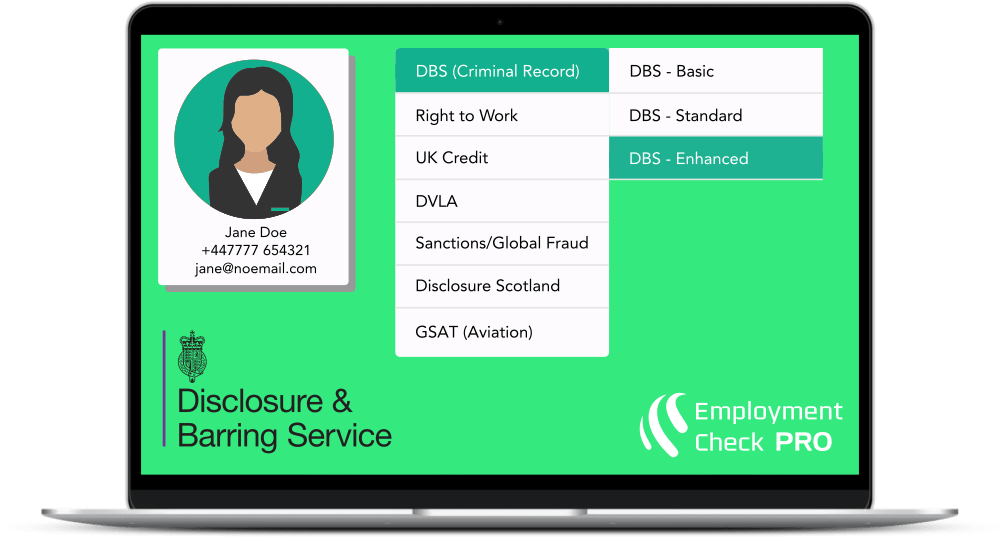In the UK, there are three different types of criminal record checks (also known as DBS checks) that are available to employers. These are basic, standard, and enhanced.
An enhanced DBS check is the most detailed check available to employers. It is carried out on employees and volunteers who will be working with vulnerable adults and/or children. This type of check is a legal requirement for certain professions including teachers, care workers, foster carers, healthcare professionals, social workers, to name a few.
There are two types of enhanced DBS checks. One which provides police records of the applicant in question, and one which also checks barred lists (including those barred from working with vulnerable adults and/or children). Which one is chosen by the employer depends on the role and sector.
Whilst it is unlikely for an enhanced DBS check to be used outside of the education and healthcare industries, it is not unheard of. In fact, organisations operating in the transport, logistics, entertainment, retail, security, science, and technology sectors have been known to use enhanced DBS checks.
What information is found on an enhanced DBS check?
Like all DBS checks, an enhanced check will contain information regarding the applicant, including their name, date of birth, and all previous addresses. As part of the process, an applicant will have their identity documents (e.g., passport) checked by the employer before a form is sent to DBS.
An enhanced DBS check will reveal the following information:
- Unspent convictions
- Spent convictions
- Conditional cautions
- Cautions
- Reprimands
- Final warnings
- Any information held by local police authorities
- If the applicant is on any barred lists
Of course, if the applicant does not have a criminal record, then a DBS certificate will come back with ‘no record found’ under each section.
An enhanced DBS check, like all DBS checks, will not tell an employer whether they should hire the individual or not. This decision is down to the employer, and they will follow a process if anything comes up on the DBS certificate.
How long does it take for the check to come through
Unfortunately, there is no straight answer to this question.
The completion time for an enhanced DBS check ranges from 24 hours to 14 days. The time to receive an enhanced DBS certificate can take around 4-8 weeks. In rare circumstances, it can take longer than 8 weeks.
There are many reasons for a DBS certificate delay. The most common reason is a backlog of applications held by local police authorities. Other reasons include random quality inspections or inaccurate information has been provided by the candidate or employer.
Employers in certain industries will do an annual enhanced DBS check for regulatory reasons. Even if an employee has worked for an organisation for a long period of time (e.g., 12 months), the DBS process for another check takes the same amount of time.
DBS check software for employers
In the digital age, more employers are using software solutions to perform pre-employment and annual DBS checks.
Many organisations use Employment Check Pro to manage their DBS check process. Pro not only automates the process for DBS checks, but also other background checks, references, data collection, and more.
Employment Check Pro reduces the time associated with hiring by around 70%; all whilst maintaining compliance. Pro is suitable for all candidates across all sectors.
To learn more, visit /pro

